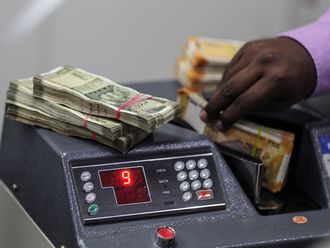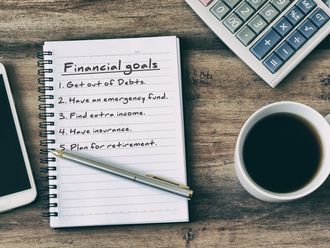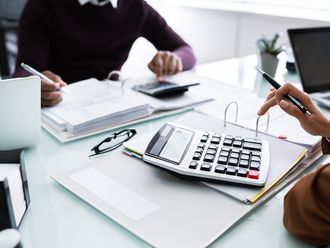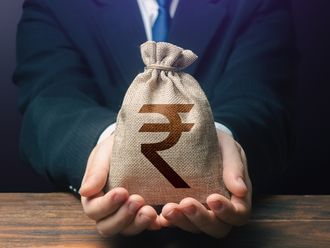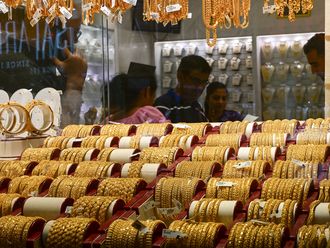
Dubai: If you’ve frequently caught yourself thinking that you’re not coming out financially ahead or you’ve stopped making progress towards financial freedom, your thoughts would echo those of 46-year-old UAE-based expat resident Shanima (last name withheld on request):
“I feel like I will stay poor and stuck in debt forever. I will won’t be able to afford the life I want. I feel I’m missing out every time anyone goes on a fancy vacation or buys something I wish I did. I want to travel, I want to have nice things, a luxury house or a car, but I just always feel financially trapped!”
While it’s only natural to occasionally feel financially stuck, Abu Dhabi-based financial advisor Andrea Barbara said that in order to constantly believe that your financial circumstances will never change for the better and as a result always live in a static state of poverty is a “crippling mindset.”
“A poverty mindset is really about scarcity. Scarcity of money, jobs, opportunities. What this does is shift the focus from what you actually have to what you don’t have. This in turn makes you feel disadvantaged,” said Barbara.
“The ‘poverty mentality’ means you are afraid of taking risks, especially if doing so involves money. But it's not always about money, it can be about failing to achieve anything in life. It's characterised by beliefs and thought patterns that perpetuate both financial struggle and self-sabotage.”
• Belief that money will never be enough.
• Fear of spending money on non-essentials.
• Belief that you are a victim of others' financial decisions and choices.
• Constant search for cheapest alternative, even if a discomfort.
• Obsession with getting big discounted deals and free-of-cost entry to events.
Other signs you have a ‘poverty mentality’
• Focusing on looking rich than being rich
Regardless of the term ‘rich’ being subjective or not, a widely accepted truth is there’s no way to tell if a person is financially successful by looking at them. Barbara and Dubai-based money coach Mirin Raul both noted that looking rich involves buying things that decrease in value.
“People who are rich (or want to be rich) buy things that increase in value. Wanting to drive a nice car and live in a nice house so that all will think you're successful, even though maintaining appearances is keeping you broke, is an easy trap to fall into, and it's a vicious cycle to break free from,” said Raul.
“Instead of spending your time worrying what your neighbours and friends think, focus your energy on getting back on your feet financially. If you stop spending money to look rich, you can actually be rich someday.”
• Feel it’s not worth budgeting or investing when not rich
You may feel that since you don't have any money, there's no point in keeping track of it. The reality is, no matter how much money you make, you need a budget. Operating without one can keep you in the red.
“If you don't have a way to oversee and manage your spending so that you have more money coming in than going out, you will be broke forever. Start a budget only to understand how much money you have to work with and what you're spending it on,” added Barbara.
“When you are broke, you don't feel you have any ‘extra’ money to send to non-essentials like investing. But investing is an essential. The longer you wait to invest, the longer it will take you to build wealth and reach financial independence.”
• You are piling up deferred expenses
A number of personal finance surveys conducted by Statista, a German data gathering platform, over the past decade have repeatedly indicated how deferred expenses are one of the key factors keeping savers worldwide broke for extended periods.
“While your list of deferred expenses may look different from others — maybe its never-ending home improvement projects, or things you are waiting to buy for your hobby — but they are keeping your money tied up nonetheless,” added Raul.
“Take a hard look at the deferred expenses that are standing in line waiting to take your money. Can you eliminate the root cause of these expenses and free up future dirhams? Doing so just may be your ticket to financial freedom.”
How you can switch to abundance-centric mind-set
One of the things that can change your mindset is learning about how money works from a personal and global finance perspective, opined Barbara. “If you do, you will realise that a poverty mindset is usually sponsored by money myths. Next, shift focus from accumulating riches to amassing wealth.
“Being rich and being wealthy differ in terms of money and financial resources. Being rich typically means having a lot of possessions and material wealth, while being wealthy is more about having sustainable and lasting wealth. This involves growing your money with an eye on the long-term.”
If this mentality stops you from spending money, you can correct that by keeping your finances in order by making a ‘money map’, noted Raul. “If your fear of money stems from past experiences, you may have to deal with it before fixing your fear of spending,” she said.
What is a ‘money map’? A ‘money map’ shows you your current financial status and also your future financial goals and helps you plan your spending and savings each month. “Without a money map, you may not get past the limiting beliefs that you can have your finances in order,” she added.
“If you remain short-sighted with your finances, you may end up with the worry that triggers a fear of spending. If you feel like the fear of spending money is creeping in, you need to take another look at your money map and see how much you have to spend and save.”
Bottom line?
Your mindset drives how you think about money and what you do with it. As opposed to what is called a ‘poverty mindset’, an abundance mindset is not about spending more or mismanaging resources, it is about approaching money from an informed standpoint.
“When it comes to personal finance and wealth building, having a poverty mindset and approach to money is a sure way to stay stagnant for life. However, if you want to achieve your money goals and build wealth the right way, and you have recognised that you are operating with the poverty mindset, now is the time to work on it,” added Barbara.

